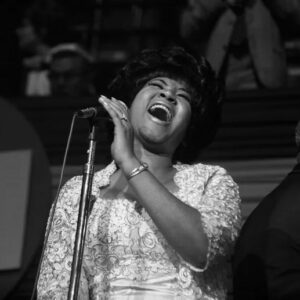Introduction
Bruce Willis has captivated audiences for decades with his unique blend of action, drama, and humor. Since he first burst onto the scene in the late 1980s, Willis has not only solidified his status as an action star but has also showcased a remarkable range that reflects deeper human experiences. Through iconic roles in films such as Die Hard, The Sixth Sense, and Unbreakable, Willis has crafted a filmography that resonates with themes of resilience, redemption, isolation, morality, and the juxtaposition of humor and darkness. This article explores these recurring themes in Willis’s work, highlighting how they reflect not only his versatile acting skills but also universal human experiences that connect deeply with audiences.
Resilience and Survival
One of the most prominent themes in Bruce Willis’s filmography is resilience—the ability of the human spirit to endure and overcome insurmountable challenges. This theme is vividly illustrated in his portrayal of John McClane in Die Hard, a character that has become emblematic of the everyman hero. McClane, a New York City police officer, finds himself trapped in a Los Angeles skyscraper overtaken by terrorists. Despite overwhelming odds, he exemplifies courage and ingenuity, fighting not just for his survival but for the lives of others.
The film’s iconic tagline, “Now I have a machine gun. Ho-ho-ho,” encapsulates McClane’s mix of bravado and vulnerability, showcasing how resilience often arises from the most dire situations. This film paved the way for a new kind of action hero—one who is not invulnerable but rather deeply human, embodying the struggles of ordinary people thrust into extraordinary circumstances.
In The Sixth Sense, Willis portrays Dr. Malcolm Crowe, a child psychologist who seeks to help a young boy who claims to see dead people. Here, the theme of survival transcends physical danger and delves into the psychological realm. Crowe’s journey is not just about helping the boy; it’s also about confronting his own unresolved issues and ultimately finding closure. The film subtly weaves a narrative that highlights emotional resilience, as both Crowe and the boy grapple with their respective traumas.
These films demonstrate that Willis’s characters are often tested by external forces, yet they emerge stronger, embodying the spirit of survival that resonates with audiences around the world. This resilience is a reflection of our own struggles in the face of adversity, making Willis’s performances not only thrilling but profoundly relatable.
Redemption and Personal Growth
Redemption is another recurring theme in Bruce Willis’s work, evident in films where his characters embark on transformative journeys of self-discovery. In Unbreakable, Willis plays David Dunn, a man who discovers his extraordinary abilities after surviving a train crash. Initially, he grapples with his identity and the implications of his newfound powers. The film’s exploration of what it means to be a hero challenges the traditional archetype, presenting a nuanced view of personal growth.
Dunn’s path to understanding his role as a protector is fraught with internal conflict and external pressures. His journey emphasizes that redemption often requires facing one’s fears and embracing one’s true self. This theme resonates deeply, as it mirrors the personal battles many face in their own lives.
In The Kid, Willis takes on the role of Russ Duritz, a successful but jaded image consultant who encounters a younger version of himself. This whimsical yet profound narrative allows Willis to explore themes of regret and the longing for a second chance. The film is a poignant reminder of the importance of self-acceptance and the power of change. As Russ confronts his past and learns to appreciate the values he once held dear, audiences are reminded that redemption is possible at any stage of life.
These narratives showcase Willis’s ability to delve into the complexities of the human experience, portraying characters that resonate with viewers on a deeply personal level. Through their journeys, he highlights the transformative power of introspection and the possibility of redemption, making his roles not just entertaining but also enlightening.
Isolation and Connection
Isolation is another theme that weaves its way through many of Willis’s films. In Die Hard, McClane is physically isolated, trapped in a skyscraper with terrorists, but the emotional isolation he experiences as a husband facing marital difficulties adds depth to his character. This duality of isolation emphasizes that true connection with others is essential for overcoming personal demons.
Similarly, in The Sixth Sense, Dr. Crowe embodies emotional isolation, struggling to connect with his wife while dealing with the haunting realities of his profession. The film deftly explores the human need for connection, as both Crowe and the young boy, Cole, navigate their respective feelings of alienation. The bond that forms between them becomes a powerful catalyst for healing, underscoring the idea that human connections can illuminate even the darkest paths.
In Surrogates, Willis plays a futuristic cop investigating crimes involving robotic avatars that allow people to experience life without leaving their homes. This narrative critiques modern society’s increasing detachment and the consequences of prioritizing virtual connections over real ones. As the film unfolds, it becomes evident that the characters’ isolation from genuine human interaction leads to deeper societal issues.
Through these portrayals, Willis’s characters often reflect our own struggles with loneliness and the quest for meaningful relationships. His ability to convey the complexities of isolation resonates profoundly with audiences, making his films not just action-packed thrillers but also poignant explorations of the human condition.
Good vs. Evil
The theme of good versus evil is a classic narrative framework that features prominently in many of Willis’s films. In Die Hard, the clear moral dichotomy between McClane and the terrorists creates a thrilling backdrop for the story. The film’s portrayal of heroism and villainy reflects broader societal conflicts, showcasing the struggle between law enforcement and crime.
In Pulp Fiction, directed by Quentin Tarantino, Willis’s character, Butch Coolidge, navigates the morally ambiguous world of organized crime. His journey to reclaim his honor and escape the clutches of ruthless mobsters illustrates the complexities of morality. The film deftly plays with the idea that good and evil often coexist, forcing characters—and viewers—to confront the gray areas of human behavior.
Moreover, in Unbreakable, the battle between Dunn and his nemesis, Elijah Price (played by Samuel L. Jackson), epitomizes the classic hero-villain dynamic. Price’s desire to prove that superheroes exist, even through acts of evil, complicates the traditional notion of good versus evil. The film challenges audiences to reconsider what constitutes heroism and villainy, blurring the lines and prompting deeper reflection on moral choices.
Through these narratives, Willis often embodies the archetypal hero, yet his roles also compel audiences to engage with the complexities of human morality. This exploration of good versus evil not only serves to entertain but also invites viewers to reflect on their own values and beliefs, enriching their viewing experience.
Humor in Darkness
One of the defining characteristics of Bruce Willis’s performances is his ability to infuse humor into dark or serious situations. This unique blend creates a sense of relatability that sets his characters apart from more archetypal action heroes. In Red, for example, Willis plays Frank Moses, a retired CIA agent who is drawn back into a life of danger. The film skillfully balances action with humor, allowing Willis to showcase his comedic timing alongside intense action sequences.
The interplay of humor and action is not merely a stylistic choice; it reflects a deeper truth about the human experience. In dire situations, humor can serve as a coping mechanism, a way to alleviate tension and foster connection. Willis’s characters often use humor to navigate their challenges, making them more relatable and multidimensional.
In Moonlighting, a television series that predates his film career, Willis displayed this comedic prowess, combining wit with charm. This foundation laid the groundwork for his future roles, where humor became an essential part of his persona. The ability to deliver a punchline amid chaos creates a unique dynamic, allowing audiences to engage with the material on multiple levels.
Through humor, Willis invites viewers to find light in dark situations, emphasizing the importance of laughter and connection in overcoming adversity. This duality enhances the richness of his performances, ensuring that his films resonate on both emotional and intellectual levels.
Conclusion
Bruce Willis’s filmography is rich with themes that resonate with audiences on multiple levels. His roles often reflect resilience, personal growth, and the complex interplay of humor and seriousness. By portraying characters who grapple with isolation, moral dilemmas, and the quest for connection, Willis crafts narratives that are not only entertaining but also deeply impactful.
As audiences continue to engage with his films, they find reflections of their own experiences within his characters. Whether it’s the triumph of the human spirit, the search for redemption, or the delicate balance between good and evil, Bruce Willis’s cinematic legacy endures as a testament to the power of storytelling. Through his work, he has not only entertained but also inspired, reminding us all of our shared humanity in an ever-complex world.





